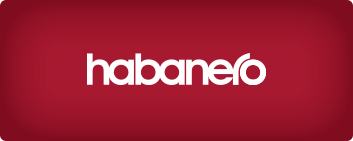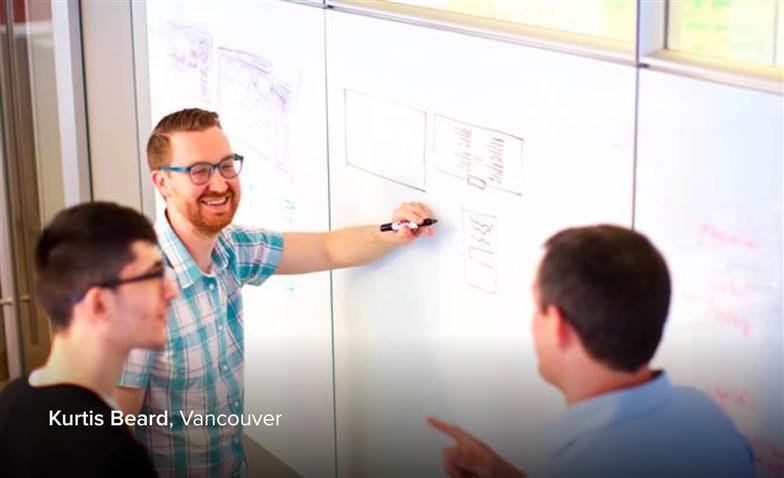We all feel significant disruption in the world around us. Each new development promises exciting opportunity, destabilizing change — or both. Within this shifting landscape, organizations must find ways to make sense of what’s happening and decide how to intentionally design our future workplace experiences.
At Habanero, one of the ways we do this is by connecting with other organizations and leaders who passionately care about the workplace and the people who bring it to life. At events like the recent Future of Work Canada conference or our roundtable discussions, we learn from and inspire each other, connect and support each other in this journey of change that we are all on together.
In this post, we want to share the insights we’ve gained from our community of clients and other organizations who are leading the way to the future of work.
Influences on 2024’s future of work
For the last three years, we’ve chaired, moderated and spoken at the Future of Work Canada conference in Toronto. Each year, the themes reflect a set of demands and shifts that are unique to our time. Here’s what we noticed this year:
Empathy demand
Organizations need to understand what's happening with their people and why they're experiencing what they're experiencing. Some organizations are listening to and understanding their employees, while others aren’t tuned into that demand and are becoming less human. There’s a sense of dissonance across the spectrum where some are struggling to respond and others are not, which is creating a big gap in experience across the workforce.
Midlife momentum for women
A space is opening – or maybe being forced open – in a move towards a more authentic understanding and impact of the midlife collision for women at work. In discussions, through the media and in organizations, we’re seeing increasing focus and effort to address the physical and emotional pressures of mid-life experiences, like menopause and caregiving, on women at work. Some organizations are embracing this and leading the way by challenging workplace mindsets and policies. And in organizations where there isn't that kind of empathy and action, women are exercising choice. They’re seeking experiences that have better alignment with their purpose or even exiting the workforce altogether, which has a broader impact on representation by women in leadership roles and in society more broadly.
Entrenchment in beliefs
We’re also noticing a wider gulf in beliefs, where organizations are clustering at opposite ends of the spectrum of the workplace experience. On one end, we see organizations that are doubling down on their commitments to create better and more inclusive, flexible, and frankly, more human work experiences. On the other end, we see organizations that are becoming even more top down, rigid and controlling, which is creating a growing expectation gap between what some leaders want and what employees expect.
Variable labour market
Even among some of the improving economic news, we’re continuing to witness widely variable organizational results, significant workforce reductions and layoffs across sectors and industries. This is leading to a rapid shift in the pendulum of labour market power post-pandemic, when it sat firmly with employees.
Rapid technological change
With the mainstreaming of new technology like ChatGPT, Copilot and Mid-Journey (just a few of the hundreds of examples of generative AI tools and technologies), we're seeing our ways of working aided by innovative technology. This rapid shift is shining a light on the opportunity (or need) to create an intentional approach to discovering organization-specific business use cases for AI and develop an understanding of the policy and ethical considerations that the technology introduces. Additionally, AI raises the opportunity to educate, reskill and grow our workforce’s soft skills and leadership among all these changes.
Opportunity to thrive in the future of work
Together, these influences create the backdrop for a moment of opportunity in the future of work. We’re at a turning point where we can move forward with intention or expend our energy trying to return to a past that no longer exists. We see this all around us as organizational leaders create return-to-office policies that aim to control or impose top-down structures that work for a few, but not for all.
Informed by our client work and conversations at events like Future of Work Canada, we see a pattern in the mindset of leaders and the organizations that help them thrive. They recognize that:
The future of work is adaptive.
We see successful organizations understanding that the future of work is more about learning than solving. It’s adaptive.
These organizations are tuned into to the idea the future of work is emerging as we speak.
To meet that need, they are building new skills and capabilities that allow them to create workplace experiences that can be developed in response to a future that is happening in this moment or hasn’t even yet emerged.
The future of work is unique.
We believe that the future of work is unique to every organization. While case studies of what other companies have done can be inspiring, successful leaders in the future of work know that what was successful for one organization does not necessarily directly apply to another. There is no cut and paste in the future of work!
While we were at the conference to be inspired by and learn from others’ interventions, methods, channels and programs, each organization’s future must be shaped by listening to the unique signals from its own employee, customer and stakeholder experiences.
How organizations listen, interpret the directional signals that matter most to them and choose to act in response must be a tailored recipe that when followed, shapes the exact right flavour for their organization’s specific workplace needs.
Empathy is the secret sauce.
To thrive in the future of work will require building an empathy muscle, not just for your employees, but for every level of the organization. It means developing empathy for managers as much as leaders and extends to customers, stakeholders, and the communities that impact your business.
It takes effort to scale empathy in this way, but it’s one of the most effective tools for understanding which dials to turn up or down to create the change your organization needs. When this empathy is integrated at an enterprise level, it can lead to great outcomes, from improved performance and responsiveness in a changing world to deeper impact, engagement, meaning and purpose at work.
Our relationship with work has – and will continue – to change
Recognizing and incorporating these shifts in the game’s rules will help organizations develop an ability to respond and adapt to the continuous change that is the future of work journey we are all on. Successful companies – the ones that last and thrive – will be the ones where leaders recognize this fundamental change in our relationship with work.



.jpeg?bc=white&la=en&mw=416&modified=20260130165838&hash=095D0F305FD51C51141367B46960F57F63671A8C)
.jpeg?bc=white&la=en&mw=416&modified=20260130225717&hash=BEFCD20AA3DAC8B73C0657E188218D50B89DECA4)

